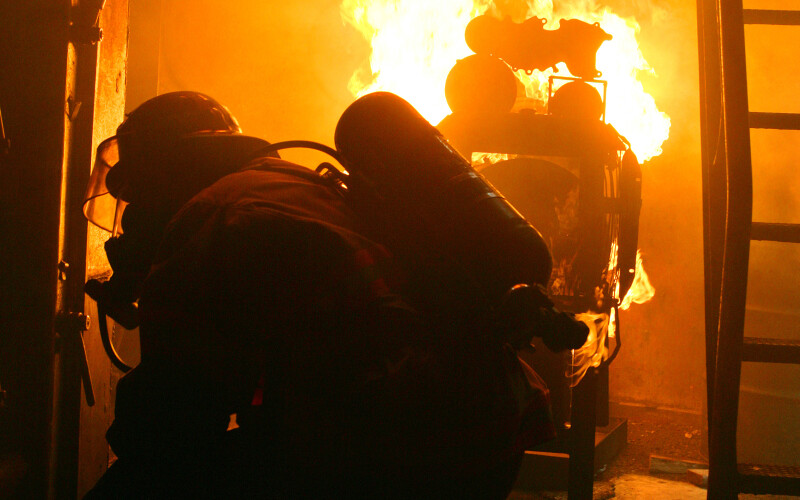New Jersey’s Port Newark terminals are some of the busiest on the East Coast, frequented by the largest containerships in the world. An ongoing Coast Guard inquiry into the July 5 deaths of two Newark Fire Department captains offers a warning that local emergency responders must be better prepared for waterfront disasters.
Newark Fire Department captains Augusto ‘Augie’ Acabou and Wayne ‘Bear’ Brooks Jr. were trapped as they tried to make their way out of a smoke-filled deck full of vehicles on the Italian-flagged 692'x118' ro/ro container vessel Grande Costa d’Avorio.
During the Jan. 10-18 hearings in Union, N.J., Newark firefighters testified that they had no prior experience or formal training for fighting shipboard fires.
According to testimony, the fire apparently started in a 2007 Jeep Wrangler that stevedores employed as a “push vehicle” to nudge cars up steep ramps to the vehicle decks, where a mix of 1,200 used and new vehicles were bound for Africa.
As the fire spread, the ship’s crew activated a carbon dioxide suppression system. When city firefighters arrived around 9:30 p.m., they were briefed by the ship’s chief, Benito LaFauci, and began ascending stairs to upper decks.
Answering questions from the Coast Guard panel, Newark fire battalion Chief Al Maresca said it was his first time serving as a firefighter on a ship. The Newark firefighters had no experience that he knew of with fires on large commercial vessels, and “just a lack of knowledge of ship [fire] fighting,” he said.
On Deck 10, Newark fire captain Oswald Robetto was with Acabou and Brooks as they made their way in zero visibility, air running low in their breathing tanks as they traced their way along a fire hose laid on the deck as a lifeline for escape. But the line had been kinked, and the three men became separated, Robetto testified.
Robetto found his way to a wall along the car deck, and to a stairwell door. Rescue teams found Acabou and Brooks trapped amid the cars – apparently victims of carbon monoxide, testified U.S. Navy Dr. Bryan Platt, a U.S. military medical examiner who consulted on autopsy results.
Early findings from the investigation led the Coast Guard to issue a Nov. 20 marine safety alert, noting that city firefighters at Port Newark “had little to no maritime firefighting training, experience, or familiarization with cargo ships of any type. Unfortunately, this is only one of several vessel fires that have occurred within the last five years where the lack of familiarity with commercial vessels and inexperience with shipboard firefighting techniques unduly endangered the safety of responding personnel.”
The board’s final witness, Virginia marine emergency and firefighting expert William Burket Jr., offered his analysis of what may have gone wrong with the firefighting effort.
Burket served 31 years with the Virginia Beach Fire Department, retiring as captain in 2010, and since then has been director of the maritime incident response team at the Port of Virginia. He said that from his review of the facts, it was evident the Newark firefighters lacked marine firefighting training.
Earlier testimony included accounts of difficulties closing a door to a vehicle deck, and heavy smoke despite an attempt to exhaust the decks using the ship’s ventilation system.
Incident commanders and firefighters must depend on a ship’s crew for help with the immediate response, Burket noted. “When we teach shipboard firefighting, we make the point that firefighters should not operate equipment they don’t know.”
When municipal fire departments have not had previous contact with port operators and the various players – tugboats, stevedores, terminal operators, and the rest – “it can be overwhelming” when they are called on for a fire response, said Burket. Burket and other marine emergency experts are working to organize a meeting to address that problem of familiarity and training opportunities. “Our priority is to get the fire departments and port authorities involved,” he said.





